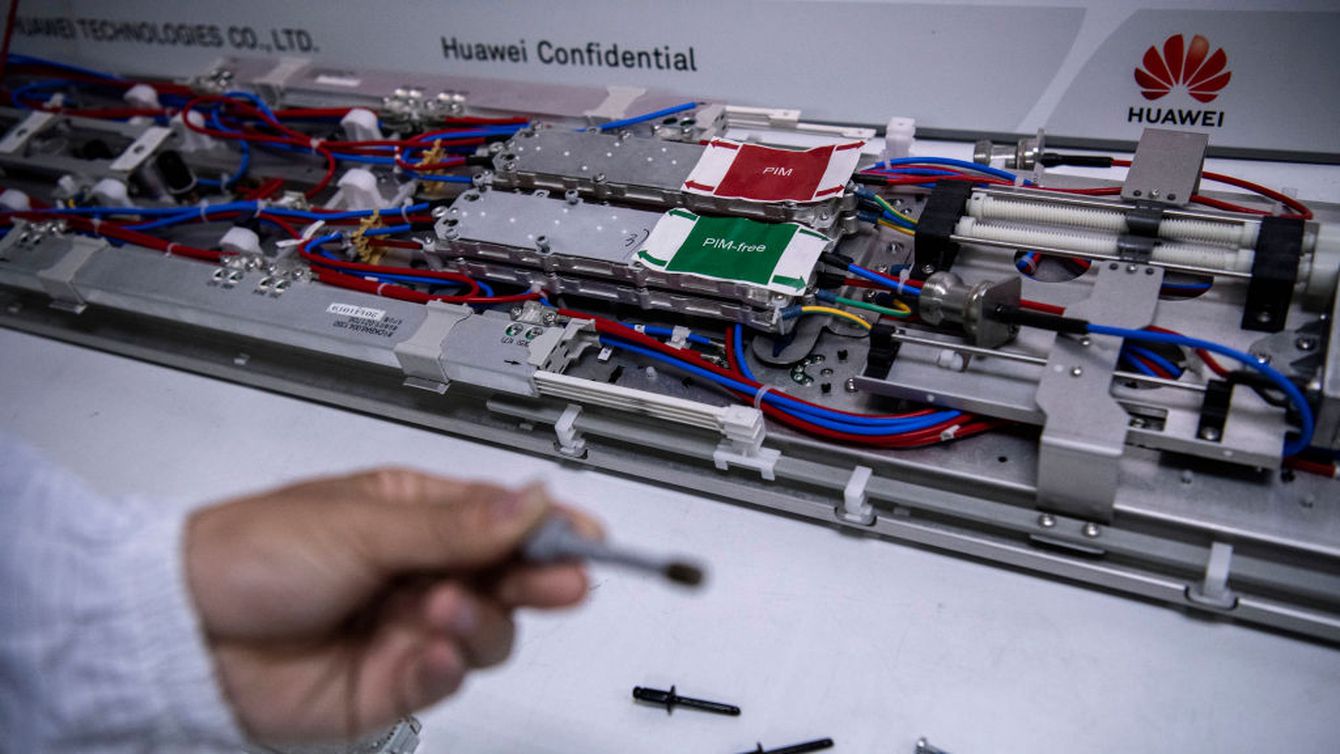Media Report

- The New York Times reports, "President Trump moved on Wednesday to ban American telecommunications firms from installing foreign-made equipment that could pose a threat to national security, White House officials said, stepping up a battle against China by effectively barring sales by Huawei, the country's leading networking company. Mr. Trump issued an executive order instructing the commerce secretary, Wilbur Ross, to ban transactions 'posing an unacceptable risk' but did not single out any nation or company. The action has long been expected and is the latest salvo in the administration's economic and security battle with China. It is also the most extreme move in the Trump administration's fight against China's tech sector. 'This administration will do what it takes to keep America safe and prosperous and to protect America from foreign adversaries' targeting vulnerabilities in American communications infrastructure, the White House press secretary, Sarah Huckabee Sanders, said in a statement."
- The Washington Post:China's Xi rallies Asia by appealing to shared culture — with subtle dig at U.S.The Washington Post reports, "China has rallied countries around its ambitious ports-and-railways infrastructure plan as a global vision to shift the economic center of gravity away from traditional powers like the United States. President Xi Jinping is now increasingly advocating something similar in a less tangible arena: culture. In speeches and a flurry of new cultural exchange programs in the last year, Xi has increasingly called on Asian countries to stand together with self-confidence and promote their culture as the world becomes 'multipolar.' Xi repeated his rallying cry on Wednesday as he addressed dozens of leaders in Beijing, where he hosted an inaugural Conference on Dialogue of Asian Civilizations. Xi did not name the United States, but the subtext was clear as he subtly criticized those who 'insist on reshaping and replacing other civilizations.'"
- The New York Times reports, "In ordinary times, worries about the health of the global economy tend to prompt leaders of the largest countries to join forces in pursuit of safety. These are not ordinary times. The biggest threat to global fortunes has become the intensifying conflict between the two largest economies on earth, the United States and China. As their leaders openly contemplate how to inflict pain on each other, the rest of the world now frets about becoming collateral damage in an escalating trade war. Only a week ago, China and the United States appeared to be moving toward cooling their hostilities, while global economic prospects were improving. Worries about a worldwide slowdown were giving way to burnished hopes for expansion. Fears about the weakening of China's economy were easing as President Trump advertised a soon-to-be-signed trade deal."
Calendar
- 2019-05-14 U.S. prepares to slap tariffs on remaining Chinese imports,
- 2019-05-13 Trade row deepens as China ups tariffs on $60B in US goods
- 2019-05-10 Trump Renews Trade War as China Talks End Without a Deal
- 2019-05-09 Trump Says China Tariffs Will Increase as Trade Deal Hangs in the Balance
- 2019-05-08 Trump Taunts China as Negotiators Prepare for Another Round of Trade Talks
- 2019-05-07 U.S.-China Trade Talks to Resume Despite Trump’s Tariff Threat
- 2019-05-06 Stocks Slump as Trump Threatens New Tariffs on China
- 2019-05-05 Trump Issues Tariff Threat and China Considers Pulling Out of Talks
- 2019-05-03 U.S.-China Trade Deal Unlikely to Address Cybertheft or Subsidies
- 2019-05-02 China's furtive underwater nukes test the Pentagon
News
- The New York Times Trump Moves to Ban Foreign Telecom Gear, Targeting Huawei and Escalating Battle With China
- The Washington Post China's Xi rallies Asia by appealing to shared culture — with subtle dig at U.S.
- The New York Times The Global Economy Was Improving. Then the Fighting Resumed.
- The New York Times Alibaba Reports Slower Growth as U.S.-China Trade War Intensifies
- Bloomberg U.S. Corn Growers Press Trump for Better China Trade Aid Treatment
- CNN US exporters scramble to figure out new tariffs
- The New York Times In China, Some Fear the End of 'Chimerica'
- CNBC We asked the Democrats running for president how they would negotiate with China on trade. Here's what they said
- The Wall Street Journal Finished Tech Products Could Take Some Blows in Tariffs Fight
- CNBC China blocks Wikipedia in all languages
- The New York Times China's Propaganda Machine Takes Aim at U.S. Over Trade War
- CNN Fever could kill a third of China's pigs. That's almost as many as are farmed in the US and Europe
- Bloomberg In Shift to Electric Bus, It's China Ahead of U.S 421,000 to 300
- MarketWatch How China's censorship on trade war throws off the algos
Commentary
- Bloomberg Trump Sticks to His Gut on China Tariffs. That's Terrible.
- The Washington Post There's a revealing puzzle in the China tariffs
- CNN Why the US-China trade war won't last
- The Hill Why Xi Jinping reneged on the trade deal with Trump
- The New York Times Who's Afraid of China's Internet Vigilantes?
- Foreign Affairs Huawei Heads South